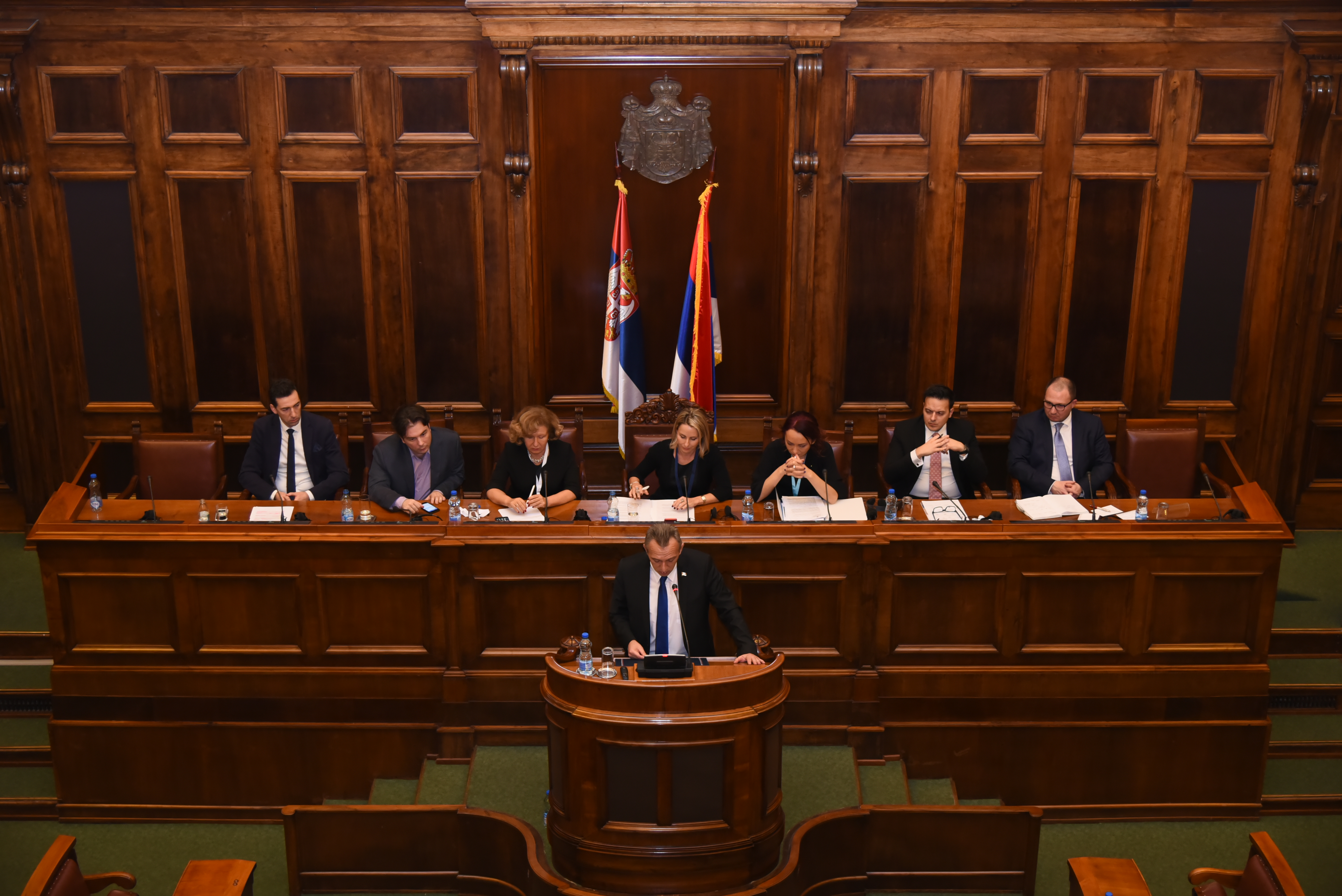In transitional countries, shadow economy has always been a substantial albeit illegal segment in the overall economy.
Curbing shadow economy and trying to legalize it are one of the most important activities of any government. This was also the topic that Regional Manager for Southeast Europe at VISA, Vladimir Djordjevic, the State Secretary in the Ministry of Justice, Radomir Ilić, a representative of the Serbian Tax Administration, Nada Novosel, the Chairman of the Committee for Combating Shadow Economy at AmCham, Ivan Miletić, the Deputy Chairman of NALED’s Fair Competition Alliance, and a representative of the Association of Private Healthcare Facilities, Jasmina Knežević discussed at a panel discussion. Deputy Executive Director of AmCham, Amalija Pavić was the panel’s moderator.

Vladimir Djordjević: “The study that we did, which included 100 cities worldwide, has shown that Belgrade places quite well in terms of cashless payments; somewhere in the middle. Reykjavik and other Nordic cities occupy the leading positions, but this doesn’t come as a surprise. Another survey that we did together with Moody’s shows that cashless payments using VISA cards have contributed to GDPs around the world with 230 billion USD. Also, the annual growth of cashless payments is fascinating – it stands at 20%. According to some estimates, this growth will exponentially rise by 100 million USD each year. If all people were to use transparent methods of payment, i.e. electronic ones, the unemployment rate would drop by 1.5% annually, and I am talking only about Belgrade here. The effect that cashless payments have on the economy is huge. In terms of spending, cards are used in 10% of payments, while the rest, 90%, is cash. If the 90% cash payments were more transparent, could you imagine the effects?”
Nada Novosel: “We have formed a strategic risk unit, in line with the tax administration transformation programme and the IMF’s recommendations. To illustrate the unit’s contribution to combating shadow economy, I would just like to say that the unit has created a long-term fiscal discipline strategy, and that it identifies the threats to the same. It also detects economic branches that are exposed to risks the most, as well as threats and risks associated with fighting the shadow economy. In late 2016, we devised a tax regulation adherence plan according to which each operational body had to describe their activities in 2017. t.”
Ivan Miletić: „In 2013, I was pretty naive in thinking that this problem would be resolved by now. That year, the tobacco black market exploded, and we, in Philip Morris, swiftly lost one-third of our legal market. I no longer consider this a sprint race. It’s a real marathon! We are going to need a lot of time and effort to reduce the shadow economy’s volume. A lot has been done already – certain budget revenue has been restored, substantial quantities of tobacco and medication have been seized, and many illegal channels have been cut off. We are now waiting for important court proceedings to start, and for some smugglers to be convicted..“
Vladimir Tipsarević: “It’s the end of the year, and we are summing up the results to see what could be done. There are good and bad elements. We are happy that we have a nation-wide programme which is an institutional platform for establishing a partnership with the state authorities in combating shadow economy. The programme is now in its 3rd year running, it has survived growing pains, and is now developing. One of its goals is to animate citizens to support the fight against shadow economy. We are happy with the results since 90% of the citizens are supportive. We are also working on harmonizing inspection oversight activities with sectoral laws so that inspections can do their job.”
Radomir Ilić: “The problem is that smugglers are sporadically caught and they are not properly prosecuted. There is also a problem with a lack of knowledge and specialization. Also, the state bodies are not communicating enough. Shadow economy is a form of corruption, and when parts of certain state bodies are involved in corruption, they are not keen to prosecute the perpetrators, but rather hide them.”
Jasmina Knezević: “The healthcare sector is growing strongly. There are over 1,300 healthcare facilities in our country, and 12% of medical workers are engaged in the private sector. We have launched an initiative to eradicate shadow economy in healthcare because illegal activities in this sector are damaging to the reputation of our university professors, which, in turn, results in young doctors and nurses leaving the country to work elsewhere. We need to create a different, respectful environment. Also, there is the unfair competition that makes our job harder, with the state losing on the revenue that it is entitled to.”